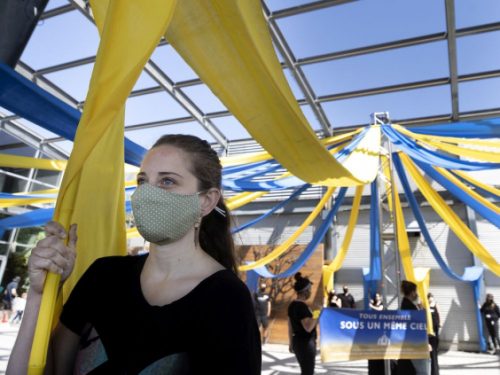A group representing the majority of creditors owed money by the Cirque du Soleil presented a formal offer to acquire the Cirque two weeks ago and it was a deal that included no layoffs and no government handouts. It would have also ensured that control of the Montreal-based circus remain in Quebec.
The group thought the current management, led by CEO Daniel Lamarre and the board of directors, was taking the offer seriously. But instead, Lamarre and the Cirque board of directors blindsided the creditors group, filing for bankruptcy protection in Quebec Superior Court on Monday and proposing a plan that would protect the stake of the three current owners: American private equity fund TPG Capital, Chinese company Fosun and the Caisse de dépot et du placement du Québec. Lamarre’s deal includes permanently firing 3,480 employees and using US$200 million from the Quebec government from a loan already promised by Economy Minister Pierre Fitzgibbon.
“Ours is a constructive proposal focused on preserving all employees, providing more money than was presented Monday … and (we will be) achieving this while preserving the company in Quebec without having to use any taxpayers’ money,” said Gabriel de Alba, managing director at the Toronto-based private equity firm Catalyst Capital Group.
Catalyst is the largest lender to the Cirque and it has been buying up much of the Cirque debt in recent months. Lamarre’s plan to seek bankruptcy protection and then relaunch the Cirque will not succeed without support of the majority of creditors.
Neither Lamarre nor any other Cirque executives were available for comment Thursday.
In its bankruptcy filing Monday and in his public comments in recent weeks, Lamarre has blamed all of the Cirque’s financial woes on the COVID-19 pandemic. All of the Cirque’s shows around the world were cancelled because of the pandemic, but court documents underline that there have been big financial issues for years. Net losses at the company increased from US$10 million to US$80 million between 2017 and 2019.
Sources close to the creditors group said the losses began piling up shortly after Cirque founder Guy Laliberté sold the circus to the consortium led by TPG in 2015 for a reported US$1.5 billion. The debt increased from around US$300 million to US$1.2 billion over those five years.
“The leverage on the organization was immense, but the profitability went nowhere,” a source said. “They were already in trouble (before COVID). They were already starting to stretch out their accounts payable as early as last August. They were deciding not to pay people.”
The provincial government is exclusively backing the plan that involves firing nearly 4,000 employees rather than supporting a bid that does not include any layoffs.
“What we have to ensure is we don’t do another Bombardier,” said Québec Solidaire MNA Vincent Marissal, referring to the government bailout of the troubled aerospace company that has cost taxpayers billions of dollars.
“The reason we lost so much money with Bombardier was because of the management structure,” Marissal added.
For Marissal, the time has come to change the upper management at the Cirque du Soleil, given their track record over the past five years.
“If we’re putting in $275 million of our taxpayers’ money, I think we should have a bit of pull,” he said. “TPG does this systematically. They buy companies, often at too high a price. They’re a bit of a cowboy company. And I don’t think we should just give them a cheque and cross our fingers that everything will turn out right … these guys are mercenaries of high finance. They buy things left and right, they have no particular expertise. … They don’t have any attachment to the Cirque. The results are bad for the past few years. It’s like Cirque co-founder Gilles Ste-Croix said — they create shows that don’t work because they don’t understand the DNA of the Cirque du Soleil.”
There are reportedly six bids to acquire the Cirque, with both Laliberté and Québecor CEO Pierre Karl Péladeau interested in buying the company. Fitzgibbon has been tight-lipped on the details of the US$200-million loan to the TPG consortium, but has said that if TPG were to sell the Cirque at a later date the Quebec government would have the first right of refusal.
The next court date is July 10 and the only thing clear right now is that the Lamarre/TPG plan cannot move forward legally without the support of the majority of the lenders.
{ SOURCE: Brendan Kelly, Montreal Gazette }
